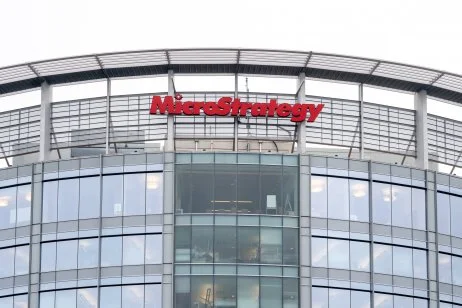Two U.S. senators, one from the Republican party and the other from the Democratic party, have put forward a new bill aimed at preventing a situation similar to the FTX collapse. This bill is called the PROOF Act, short for Proving Reserves of Others Funds. Senators Thom Tillis from North Carolina and John Hickenlooper from Colorado jointly presented the draft of this legislation on a recent Friday.
The main goal of the PROOF Act is to protect against the mishandling of customer funds and ensure transparency. It does this by requiring a neutral and independent auditing firm to produce a monthly proof-of-reserves report (PoR). This report will act as a safeguard to prevent unethical practices and promote financial security.
According to this bill, digital exchanges are required to set up minimum standards for customer accounts to protect their funds. The bill also mandates that these exchanges prove their reserves and liabilities using cryptographic methods. Additionally, the bill outlines civil penalties, including fines for those who violate these rules.
Offering some advice to the congressional pair who introduced this bill, Nic Carter, a partner at Castle Island Ventures, an investment firm specializing in blockchain-related projects, expressed uncertainty about its chances of becoming law. However, he mentioned that there are aspects of the bill that would appeal to those who are not in favor of cryptocurrencies.
He seemed to be referring to the Democratic Party, which has generally been opposed to the growth of the crypto industry in the United States, both in the Senate and the House of Representatives.
“In general,” Carter stated, “Democrats should find ‘proof-of-reserves’ appealing because it offers extra oversight for exchanges and custodians.”
Elizabeth Warren, a Democratic senator from Massachusetts, along with several other Democratic senators, has been working to gather support for an Anti-Money Laundering Act in the Senate. This act is designed to address the risks associated with the cryptocurrency industry. Meanwhile, in the House of Representatives, there are several Democratic lawmakers who are against cryptocurrencies, including Rep. Maxine Waters from California, who was previously in favor of the industry and is currently a member of the House Financial Services Committee.
Despite the political divide, ‘proof-of-reserves’ is gaining widespread attention as a public policy that can bring much-needed transparency to the crypto industry. It’s not a new concept, according to Carter, but its significance became more apparent after the SBF incident, making it an essential element in the industry.
Dennis Porter, the founder and CEO of the Satoshi Action Fund, a non-profit group that advocates for sensible Bitcoin policies, expressed his agreement with the concept of ‘PoR’ (proof-of-reserves). He highlighted the recent HB1666 bill in Texas as an excellent example of a state-level requirement for proving reserves.
Porter criticized the BitLicense recently passed in California, which has been a contentious crypto bill according to experts. He called on other states to implement regulations with a lighter touch, similar to what Texas has done. He’s hopeful for more practical policies regarding digital assets and wishes to see them adopted at the federal level, which appears to be the direction Senators Tillis and Hickenlooper are heading.
Proving reserves is relatively straightforward due to the computational abilities of digital assets, which actually positions the industry as more transparent compared to the traditional financial system.
Alex Thorn, who leads firmwide research at Galaxy Research and is a supporter of cryptocurrencies, has been assisting Congress with the bill. He believes that ‘PoR’ (proof-of-reserves) has become a potent, practical, and effective method to enhance consumer protection and regulatory compliance.
According to him, it’s considered a best practice within the industry. Thorn pointed out that while numerous bills are slowly making their way through Congress, none of them effectively address the recent issues and problems in the cryptocurrency field like the PROOF Act.
Thorn is also hopeful that these kinds of innovations can lead to better practices in the future. He’s optimistic that policymakers will recognize and incorporate the technological advantages provided by digital assets as they consider future policy options.





